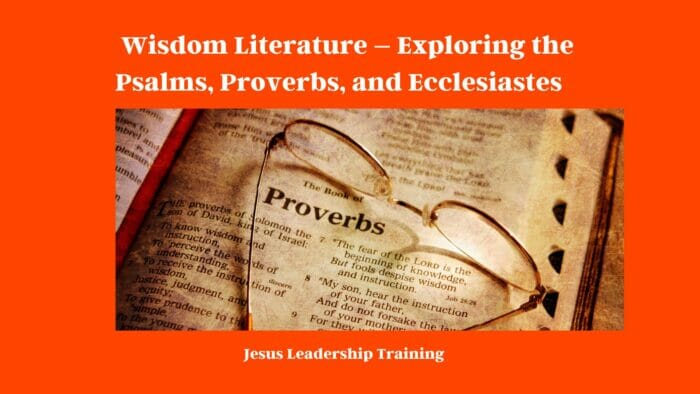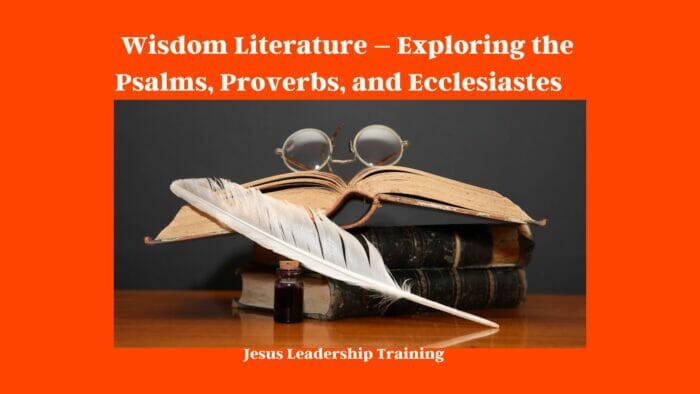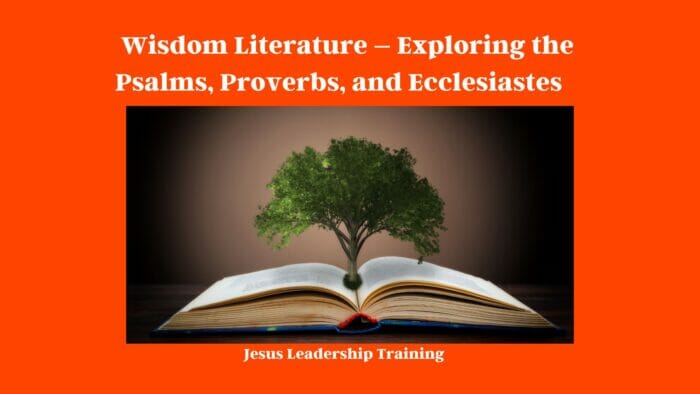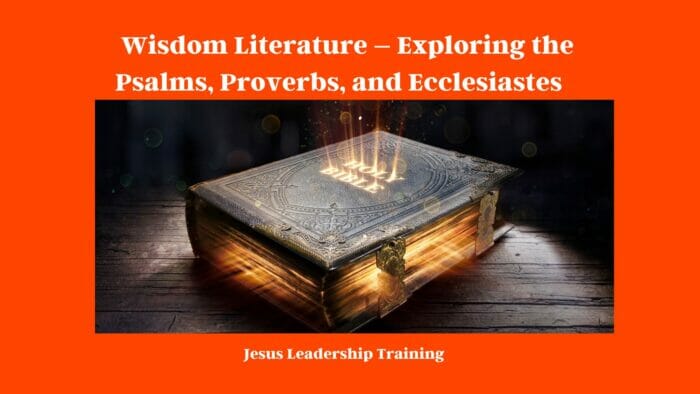Table of Contents
Introduction: Journeying Through Wisdom Literature
You know, it’s often said that “Old is Gold,” and when it comes to Wisdom Literature, you’d be hard-pressed to find a truer phrase. These ancient manuscripts offer pearls of wisdom that have stood the test of time, remaining strikingly relevant even in our fast-paced, technology-driven world. From the heart-stirring Psalms to the insightful Proverbs and the thought-provoking Ecclesiastes, each one packs a punch!
Why Study Wisdom Literature?
But why, you might ask, should we bother studying this old-time literature? Simple. It’s like opening a window to a treasure trove of life lessons, moral guidance, and deep philosophical introspection. Besides, it adds a dash of spice to the otherwise bland academic pursuit, and who wouldn’t fancy that?
Wisdom Literature: Exploring the Psalms, Proverbs, and Ecclesiastes
Wisdom Literature: Exploring the Psalms, Proverbs, and Ecclesiastes, is akin to sifting through a rich tapestry of human emotions, experiences, and reflections. It’s a trip down the corridors of time, offering glimpses into the collective wisdom of ancient civilizations. The journey may seem daunting at first, but rest assured, it’s well worth it.

Delving into the Psalms: The Heart’s Songbook
Picture this: You’re having one of those days when nothing seems to be going right. You’re feeling blue, and you need something to lift your spirits. Well, that’s where the Psalms come in! They serve as a balm to the troubled soul, offering comfort, encouragement, and hope in times of despair.
Types of Psalms
From psalms of lament to psalms of thanksgiving and praise, the Psalter covers a broad spectrum of human emotions. This diversity makes it a go-to resource for personal reflection and communal worship.
The Universal Appeal of the Psalms
The Psalms resonate with people across the globe, cutting across cultural and religious boundaries. They capture the essence of the human spirit, making them a timeless resource for spiritual nourishment.
Probing the Proverbs: Nuggets of Timeless Wisdom
Proverbs, the quintessential Wisdom Literature, are chock-full of practical advice on leading a righteous, fulfilling life. It’s like your very own handbook for life!
Understanding the Proverbs
Proverbs are succinct, punchy statements brimming with wisdom. They serve as ethical compasses, steering us towards the path of righteousness and away from the pitfalls of folly.

Applying Proverbs to Modern Life
Despite their ancient origins, Proverbs provide invaluable guidance for navigating the complexities of modern life. From interpersonal relationships to personal development, their wisdom transcends time and space.
Engaging with Ecclesiastes: The Philosophy of Life
Ecclesiastes, with its profound philosophical musings, invites us to ponder the purpose of life. It’s a challenging yet rewarding exploration of existentialism.
The Key Themes of Ecclesiastes
Ecclesiastes grapples with themes such as the transience of life, the pursuit of wisdom, and the meaning of work. It’s like having a heart-to-heart chat with an old, wise friend.
Ecclesiastes and Contemporary Existentialism
Interestingly, Ecclesiastes echoes many of the sentiments found in contemporary existential thought, underscoring its enduring relevance in today’s world.

FAQs
- Why is it important to study the Psalms, Proverbs, and Ecclesiastes? Studying these texts allows us to tap into the reservoir of ancient wisdom, providing guidance for navigating life’s trials and tribulations.
- How can the Psalms be relevant to my life? The Psalms express a range of human emotions and experiences, making them relatable across different life situations.
- What kind of wisdom can I find in the Proverbs? Proverbs offer practical wisdom on a variety of life aspects, from interpersonal relationships to ethical behavior.
- Why is Ecclesiastes considered a philosophical book? Ecclesiastes delves into profound existential questions about the purpose and meaning of life, earning it a reputation as a philosophical text.
- Can Wisdom Literature be applied to the 21st century? Absolutely! The themes and lessons of Wisdom Literature are timeless, making them applicable to our contemporary lives.
- Are there any resources to help me understand Wisdom Literature better? There are numerous study guides, commentaries, and online resources that provide deeper insights into Wisdom Literature.
Conclusion
Wisdom Literature: Exploring the Psalms, Proverbs, and Ecclesiastes is not just a scholarly endeavor; it’s a voyage of personal discovery. As we unlock the secrets held within these ancient texts, we gain insights that help us navigate the labyrinth of life with wisdom and grace. So, why wait? Dive in, and let the journey begin!




